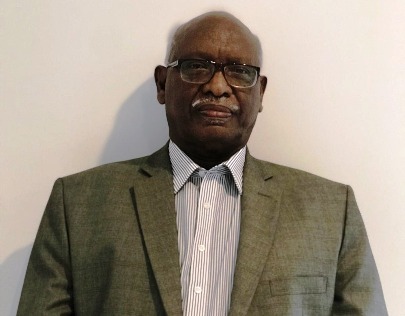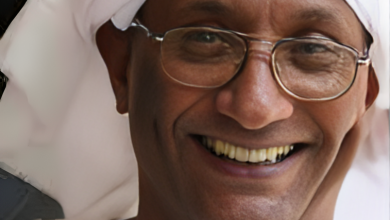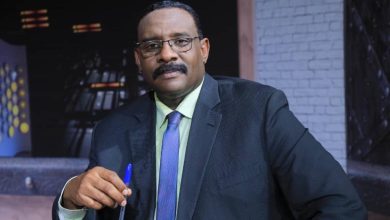Is Sudanese Society Ready for Democracy? (2-2)

Zein Al-Abidin Saleh Abdul Rahman
The previous article focused on raising questions about past governance experiences, particularly regarding the reasons behind military coups, the political systems on which they were established, their responsibilities for wrong practices, decisions, and laws that were issued, and the changes they brought about that resulted in negative outcomes for society, its political, social, and security instability. These factors negatively impacted the economy and the country’s development. In this article, we also raise questions about society, its culture, and diversity: are these factors conducive to the democratic transformation process? If they are not conducive, what are the requirements and changes that need to occur to make them suitable for the desired democratic transformation process? Does the democratic transformation process require the Sudanese people to abandon their religion, culture, customs, and traditions to qualify for the process of change? Or are there specific negative practices that need to be changed to align with the democratic process?
In Sudan, it is well-known that it is a country with diverse cultures, and this diversity stems from the varied environments in which people live, the tools they use, the types of work they perform, and the significant religious influence in society. This cultural diversity should be regarded as an enrichment to people’s lives and a primary source of inspiration and creativity. Its impacts on the democratic transformation process should be positive rather than negative. Other factors also need to be considered in their development, for example, the issue of local administration. It is noted that local administration is restricted to specific families’ thresholds. Is inheritance in this context beneficial for the democratic process? Or is it better to maintain local administration but have its leadership come through periodic elections where those who believe they are qualified for the role can run? The competition and diversity in leadership would motivate those elected to strive to offer better services to their region and citizens than their predecessors, and elections would reduce and prevent deviations into personal or familial interests, also impacting the competitive electoral process between parties.
Another critical issue is Sufism: Sufi orders play a significant and influential role in political life, especially in elections, particularly in rural areas and villages where everyone submits to the opinion of the Sufi sheikh. This has negative repercussions as it limits political awareness. The sheikh thinks on behalf of others, and he thinks according to his interests and the interests of his order, not the public’s. Depending on the sheikh to think prevents individuals from reaching the level of awareness that allows them to choose the person they want and also recognize their rights and duties. Have the political parties fighting for democracy conducted studies on the obstacles hindering the democratic transformation process in the country? Have the parties been able to answer the questions to create new awareness among citizens?
The most important source of changing awareness is education, its curricula, and teaching methods. Have the parties conducted studies to explain to citizens why education deteriorated after the first change in the educational ladder and curricula? It is noted that students rely more on the teacher than on their own efforts in striving and searching for information from multiple sources, so they learn that truth in science is relative, and therefore each student is required to seek out its various aspects and, in the end, present their vision, not their teacher’s. The correction then becomes whether the student followed the correct scientific steps.
American thinker Francis Fukuyama says, “Democracy cannot be achieved in a country where ethnicity, locality, and population groups are so inflated that they do not share as one nation or accept each other’s rights.” Such a dilemma poses a significant obstacle to establishing a healthy civil society because civil society is the one capable of expanding the circle of popular participation in an organized manner, aiming to produce democratic culture according to laws and regulations and respecting them, where everyone takes off the cloak of sectarianism and tribalism, and individual capabilities become the first motivator for absorption in work. This culture has regressed significantly under totalitarian regimes but remains under the ongoing party conflict because…
Sudanese parties, despite being labeled with terms like “sectarian, familial, reactionary, progressive, right-wing, left-wing, and others,” all adopt the same method in their organizational management and the practice of their members, no matter their organizational structure. A single person is at the top, steering the ship until death takes them, after which another comes and follows the same path. These leaders prevent the practice of democracy within the parties yet want it in governance. How can people be convinced that when in power, they will be democratic?
I do not believe anyone accepts the monopoly of power and totalitarian rule. There must be national agreements through dialogue aimed at accepting the peaceful transfer of power through elections. Democracy needs cycles to strengthen its roots in society, requires cultural production through laws, regulations, and practices, and necessitates the involvement of the largest possible segment of society through neighborhood committee elections, followed by local, state, and general elections, and the elections of civil society organizations and unions to reinforce democratic culture. An important law should be issued for political parties, ensuring that no member participates in party leadership for more than two terms, and each term should not exceed four years. New awareness is what creates a new reality in any society. We ask God for good insight.



